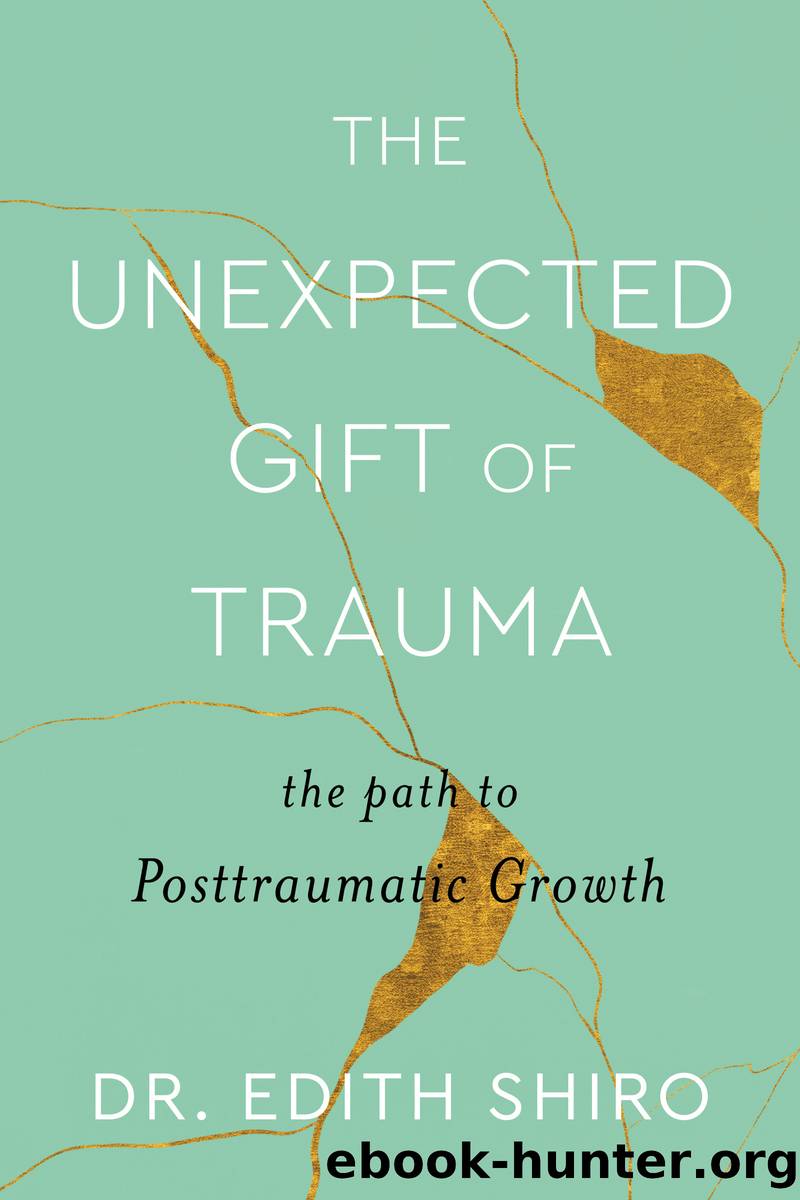The Unexpected Gift of Trauma by Dr. Edith Shiro

Author:Dr. Edith Shiro
Language: eng
Format: epub
Publisher: HarperCollins
Published: 2022-12-27T00:00:00+00:00
STAGE 3: A NEW NARRATIVE
Often in this stage a community realizes that what has worked in the past isnât working anymore. This is when they consider a new way of being and the need to create a new paradigm and a new group identity.
This is a natural extension of the previous stage: people felt safe enough to tell their stories on an individual and communal level, but now theyâre expanding those narratives and, together, seeing whatâs possible. They know what hasnât worked, what has caused them pain; now itâs time to imagine something new. Jack Saul calls this a âdialogical process,â in which the group can âopen up by letting the stories breathe,â by moving from static to dynamic stories of the difficulties their people have had. Communities do this in dialogue with one another as a âway to get out of the constrained narrativeâ of their collective past and move toward a freer future. In this regenerative stage, everything is on the tableâhow they tell their collective story, how they define themselves, what kind of narratives they use to describe who they are, how they envision their future. They begin to realize they can shift the discourse and the narrative of their traumas theyâve been carrying on a familial, cultural, national, and global level. And from that realization they can come together to reimagine, re-create, and reframe their narrative and their future with more freedom.
The Cambodian refugees who fled the Pol Pot regime and the genocide inflicted upon their people by the Khmer Rouge and settled in the Bronx in New York City and in Los Angeles offer a beautiful example of reimagining and redefining who they are. After coming to the United States, the Cambodians slowly began to create a sustainable community in their adopted home. They had to navigate their new cities, a new language, and for many, new ways of making a living. They began to figure out how to survive, adjust, and even thrive. They realized they could bring the strength, resources, and resilience that allowed them to survive the wars to their new situation and build a new life.
Download
This site does not store any files on its server. We only index and link to content provided by other sites. Please contact the content providers to delete copyright contents if any and email us, we'll remove relevant links or contents immediately.
Should I Stay or Should I Go? by Ramani Durvasula(7641)
Why We Sleep: Unlocking the Power of Sleep and Dreams by Matthew Walker(6686)
Fear by Osho(4723)
Flow by Mihaly Csikszentmihalyi(4671)
Rising Strong by Brene Brown(4435)
Why We Sleep by Matthew Walker(4421)
The Hacking of the American Mind by Robert H. Lustig(4356)
How to Change Your Mind by Michael Pollan(4340)
Too Much and Not the Mood by Durga Chew-Bose(4324)
Lost Connections by Johann Hari(4164)
He's Just Not That Into You by Greg Behrendt & Liz Tuccillo(3873)
Evolve Your Brain by Joe Dispenza(3653)
The Courage to Be Disliked by Ichiro Kishimi & Fumitake Koga(3473)
Crazy Is My Superpower by A.J. Mendez Brooks(3380)
In Cold Blood by Truman Capote(3366)
Resisting Happiness by Matthew Kelly(3331)
What If This Were Enough? by Heather Havrilesky(3298)
The Book of Human Emotions by Tiffany Watt Smith(3284)
Descartes' Error by Antonio Damasio(3263)
